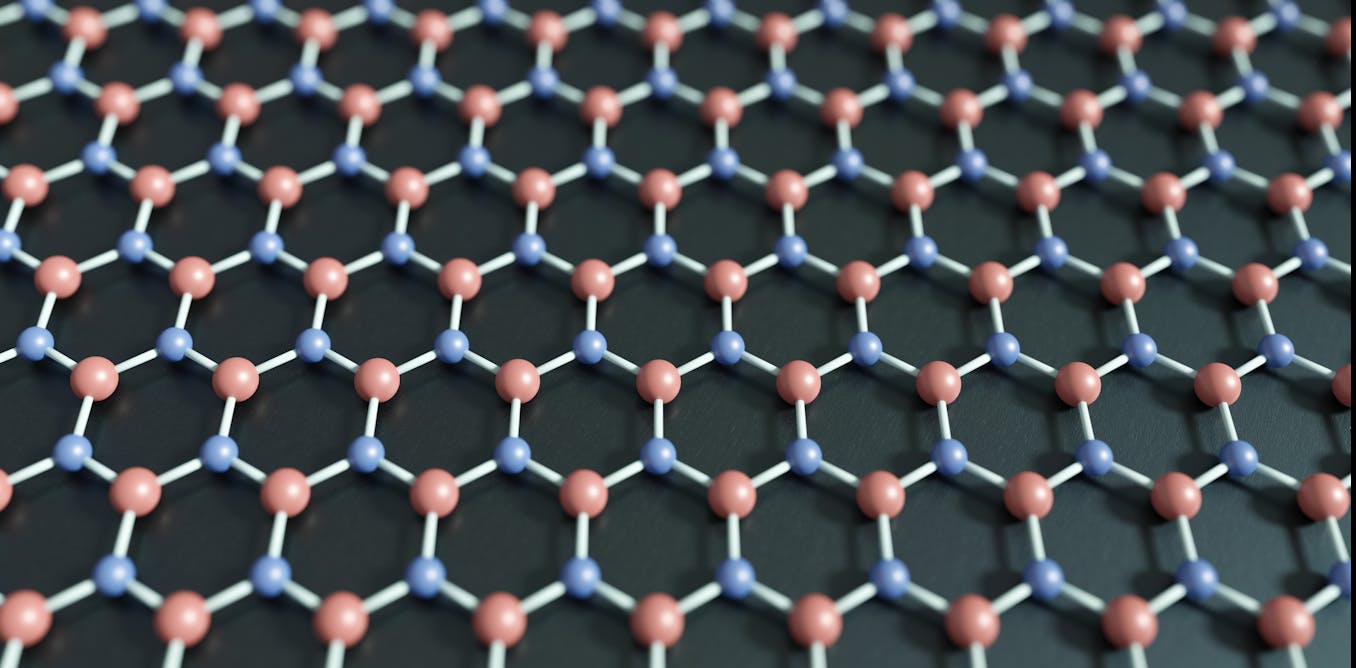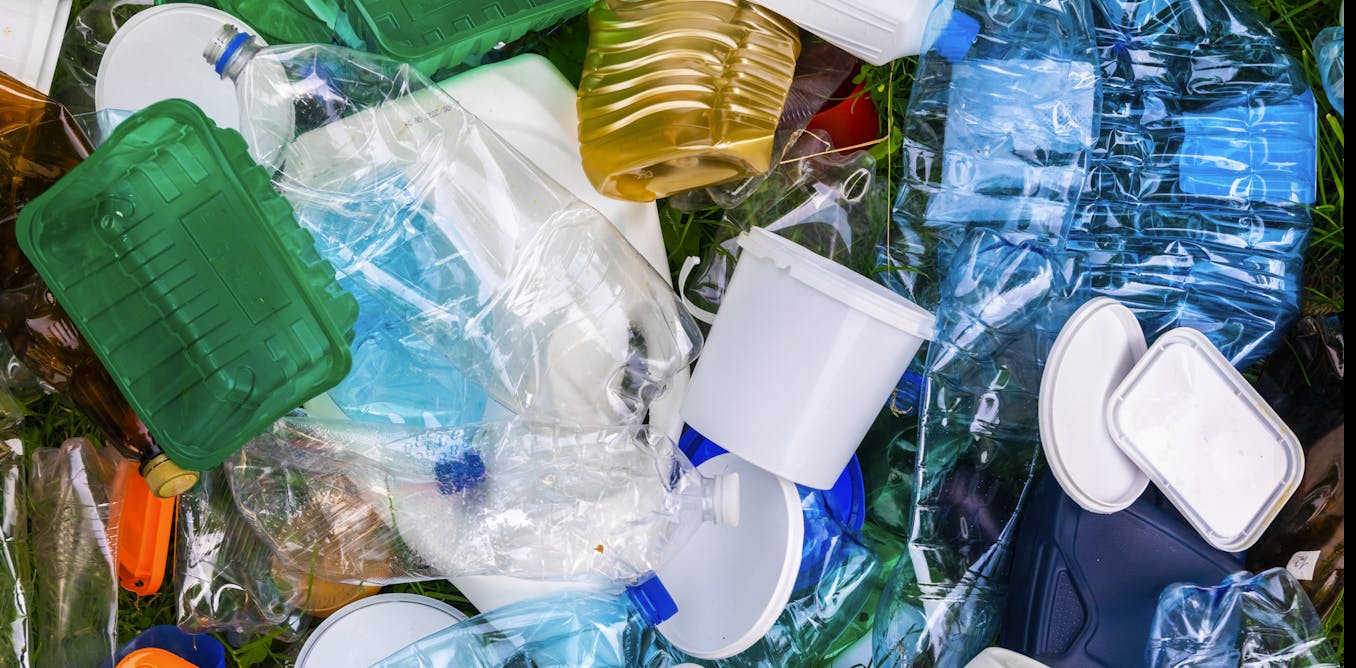3D printing promises more efficient ways to make custom explosives and rocket propellants
‘Energetic’ materials are ones that readily ignite or detonate. The shapes of those materials have a big effect on how they burn or blow up.
Feb. 20, 2024 • ~8 min
Combining two types of molecular boron nitride could create a hybrid material used in faster, more powerful electronics
Two forms of the same boron nitride molecules couldn’t look and act more different – but combining them could lead to applications that have the best of both worlds.
Jan. 24, 2024 • ~7 min
Engineered 'living materials' could help clean up water pollution one day
‘Living materials’ made with genetically engineered bacteria and Jell-O-like gel could make pollutants in water bodies nontoxic.
Nov. 7, 2023 • ~6 min
Space rocks and asteroid dust are pricey, but these aren't the most expensive materials used in science
Some space rocks you can get for free – if you know how to identify them. Rarer materials cost more, and the asteroid sample NASA just brought back has a high price tag.
Oct. 24, 2023 • ~9 min
New class of recyclable polymer materials could one day help reduce single-use plastic waste
A team of scientists has developed a method for creating a new class of plastic materials that are potentially more recyclable than single-use plastics.
Oct. 19, 2023 • ~7 min
Quantum dots are part of a revolution in engineering atoms in useful ways – Nobel Prize for chemistry recognizes the power of nanotechnology
Quantum dots are a prime example of the way nanotechnology engineers materials at an atomic scale.
Oct. 4, 2023 • ~9 min
Separating molecules is a highly energy-intensive but essential part of drug development, desalination and other industrial processes – improving membranes can help
Around half of US industrial energy use goes toward separating molecules in industrial processes. Developing materials that can withstand harsh industrial conditions can help increase efficiency.
Sept. 7, 2023 • ~5 min
Glass: Neither a solid nor a liquid, this common yet complicated material is still surprising scientists
Two glass researchers explain how glass is made, the unique properties of glass and how those properties have allowed it to be a useful material to humans for thousands of years.
June 13, 2023 • ~7 min
Room-temperature superconductors could revolutionize electronics – an electrical engineer explains the materials' potential
Superconductors make highly efficient electronics, but the ultralow temperatures and ultrahigh pressures make them costly and difficult to use. Room-temperature superconductors promise to change that.
March 28, 2023 • ~8 min
/
3









